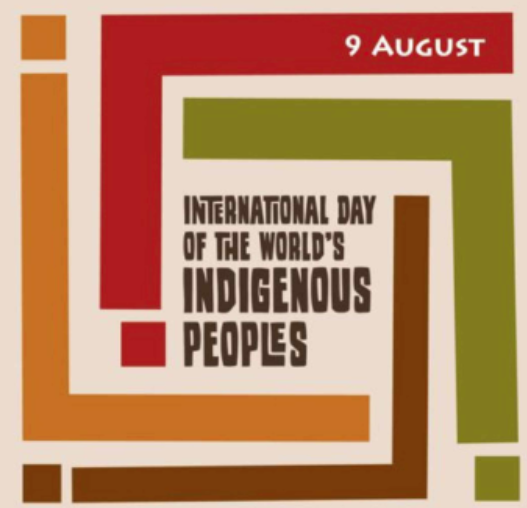The International Day of the World’s Indigenous Peoples is observed annually on August 9 to raise awareness and promote the protection of the rights of Indigenous peoples worldwide.

This day honors the rich cultures, achievements, and contributions of Indigenous communities, while also drawing attention to the ongoing challenges they face — including poverty, discrimination, and limited access to education, healthcare, and other essential services.
There are an estimated 476 million Indigenous Peoples across the globe, living in more than 90 countries. Though they comprise less than six percent of the world’s population, they represent at least 15 percent of the world’s poorest. These communities speak the vast majority of the world’s 7,000 languages and carry forward over 5,000 unique cultures—each rooted deeply in tradition, place, and identity.
In the United States, Native Americans are Indigenous to the land. Just in the United States alone, there are 574 federally recognized tribal nations and hundreds of state recognized tribes.
Indigenous Peoples are the original stewards of their lands, inheritors of ancient knowledge systems, and caretakers of living cultures passed down through generations. They maintain social, political, economic, and spiritual practices that set them apart from the dominant societies surrounding them. Yet despite the beauty and resilience of these communities, Indigenous Peoples around the world face shared challenges—systemic discrimination, land dispossession, cultural erasure, and the ongoing struggle to have their inherent rights recognized and respected.
For centuries, Indigenous Peoples have fought for acknowledgment of their identity, their sacred relationships with land and water, and their right to self-determination. Too often, these rights have been denied or violated, leaving Indigenous communities among the most marginalized and vulnerable populations on the planet.
Recognizing this enduring struggle, the United Nations proclaimed August 9 as the International Day of the World’s Indigenous Peoples. The date marks the anniversary of the first meeting of the UN Working Group on Indigenous Populations in Geneva in 1982—an event that signaled a growing global awareness of the need to protect Indigenous rights and honor Indigenous voices.
As this day is observed, it serves as both a reminder and a call to action: that the rights of Indigenous Peoples are human rights, and that justice cannot be achieved without listening to, and standing with, those who have carried the wisdom of the land since time immemorial.
More Stories Like This
Native News Weekly (August 25, 2024): D.C. BriefsMonday Morning (March 2, 2026): Articles You May Have Missed This Past Weekend
Native News Weekly (March 1, 2026): D.C. Briefs
Scope Narrowed, Report Withheld: Questions Mount Over Michigan Boarding School Study
Zuni Youth Enrichment Project Announces Family Engagement Night and Spring Break Youth Programming
Help us defend tribal sovereignty.
At Native News Online, our mission is rooted in telling the stories that strengthen sovereignty and uplift Indigenous voices — not just at year’s end, but every single day.
Because of your generosity last year, we were able to keep our reporters on the ground in tribal communities, at national gatherings and in the halls of Congress — covering the issues that matter most to Indian Country: sovereignty, culture, education, health and economic opportunity.
That support sustained us through a tough year in 2025. Now, as we look to the year ahead, we need your help right now to ensure warrior journalism remains strong — reporting that defends tribal sovereignty, amplifies Native truth, and holds power accountable.
 The stakes couldn't be higher. Your support keeps Native voices heard, Native stories told and Native sovereignty defended.
The stakes couldn't be higher. Your support keeps Native voices heard, Native stories told and Native sovereignty defended.
Stand with Warrior Journalism today.
Levi Rickert (Potawatomi), Editor & Publisher


